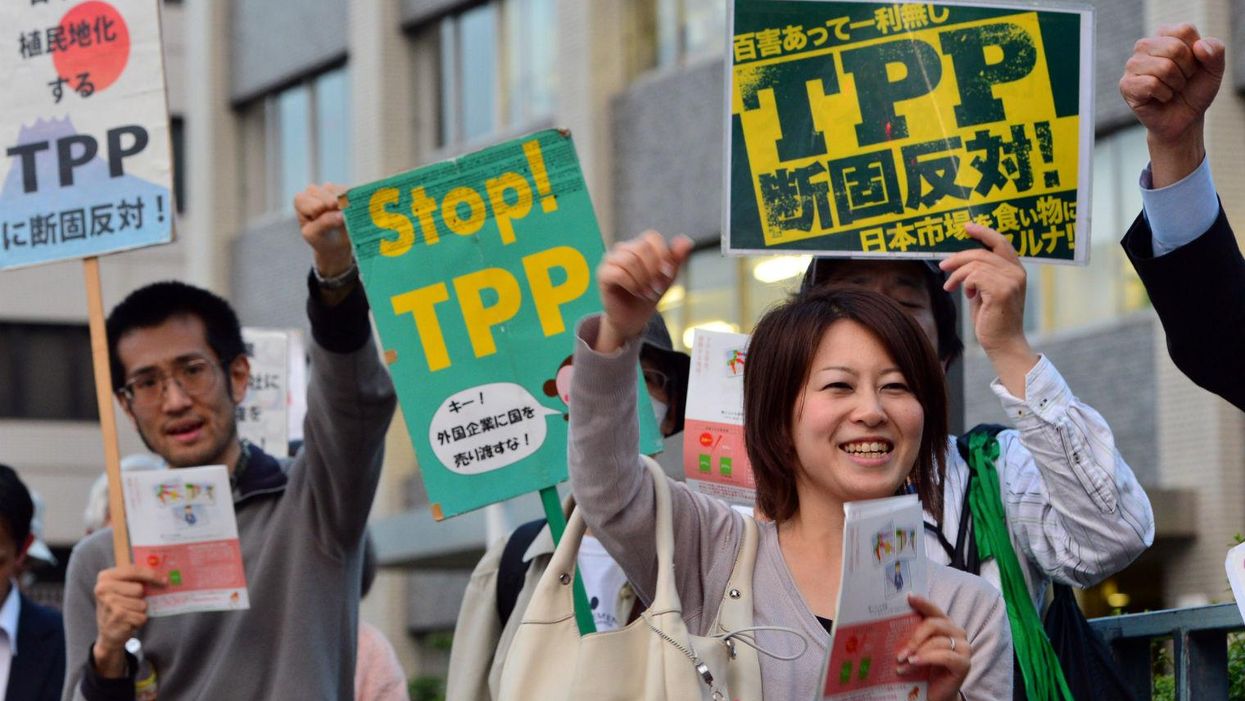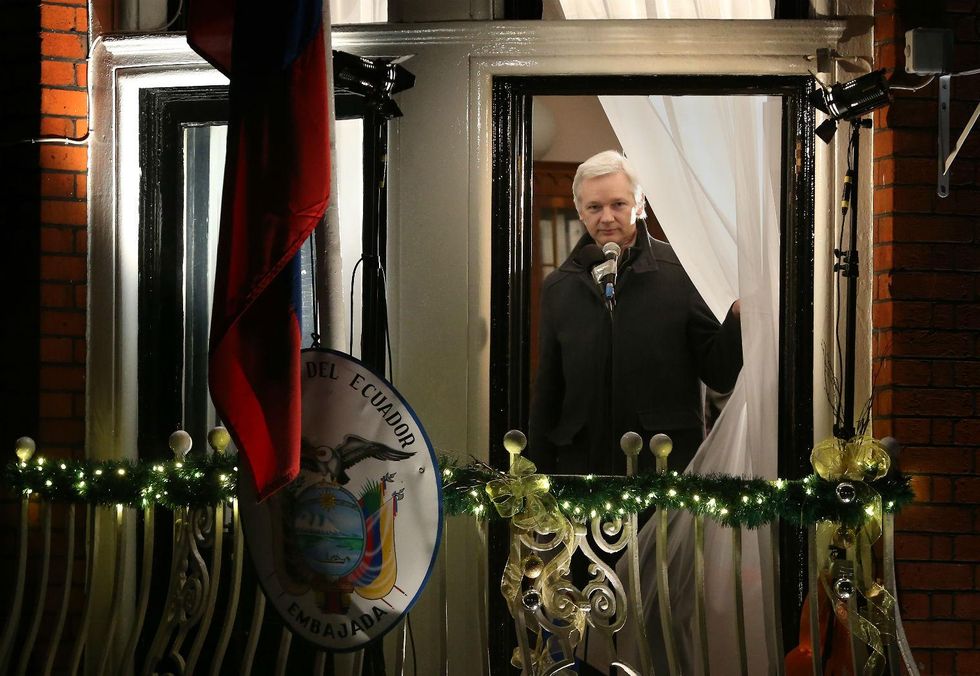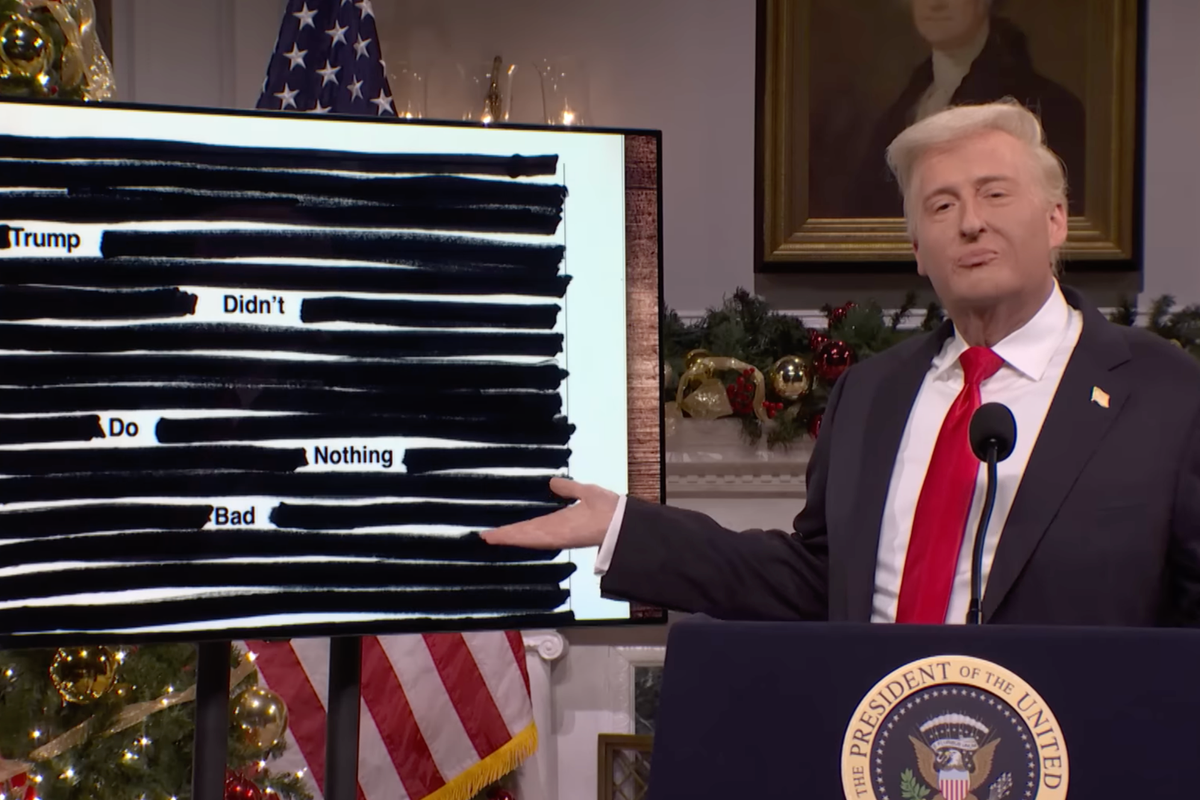News
Bethan McKernan
Jun 04, 2015

Protestors at a rally against the Trans-Pacific Partnership trade deal in Tokyo in May 2014.
On Wednesday WikiLeaks released 17 secret documents from the controversial Trade In Services Agreement (TISA) trade deal negotiations, a treaty covering the US, EU and more than 20 other countries.
The multilateral free-trade deal has been negotiated in secret since 2013. Significantly, none of China, India, Brazil, Russia or South Africa are included in the talks, which have been heavily criticised around the world as a deal designed to benefit Western nations and corporate interests.
The TISA pact is designed to work in conjunction with two other huge and controversial trade agreements, the Transatlantic Trade and Investment Partnership (TTIP) for the US and Europe, and the Trans-Pacific Partnership (TPP), targeted at 12 Pacific Rim countries.
WikiLeaks has made several draft chapters of the TPP and TTIP trade deals public in recent years - last year founder and editor in chief Julian Assange (still holed up in the Ecuadorian embassy) said leaked intellectual property rights proposals from the TPP would “trample over individual rights and free expression".
TISA may be blandly named but has far-reaching consequences. The documents made public by WikiLeaks this week include proposals on issues as wide-ranging as telecommunications, air traffic, e-commerce, corporate and government transparency, maritime transport, and regulation of financial services corporations.
The main takeaway, Communications Workers of America president Larry Cohen told the Huffington Post, is bad news for workers and unions.
Today's leaks of TISA (trade in services) text reveal once again how dangerous Fast Track Authority [a related bill in the US Congress] is when it comes to protecting citizen rights vs corporate rights... This TISA text again favors privatisation over public services, limits governmental action on issues ranging from safety to the environment using trade as a smokescreen to limit citizen rights.
The White House has repeatedly refused to comment on revelations from documents leaked by WikiLeaks. On Wednesday WikiLeaks launched an appeal to crowd-source a $100,000 bounty for more documents related to any of the three trade deals.
More from The Independent: What is TTIP? And six reasons why the answer should scare you
Top 100
The Conversation (0)













